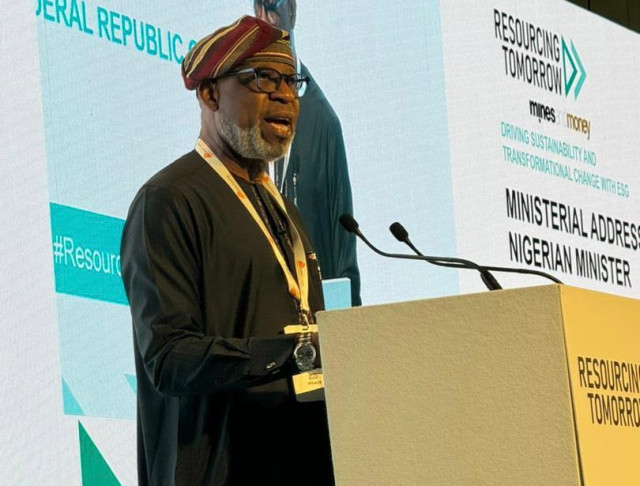The Federal Government, through the Ministry of Solid Minerals Development, has revoked 924 dormant mineral licences to enhance the mining sector’s transparency and efficiency.
This action was taken as the government identified licence racketeering as one of the main obstacles hindering the sector's development.
The Minister of Solid Development Minerals, Dele Alake, disclosed this information at a press conference on Wednesday in Abuja.
The revoked licences include 528 exploration licences, 20 mining leases, 101 quarry licences and 273 small-scale mining licences.
Last November, the ministry revoked 1,633 mineral titles previously given to non-complying mining companies for failure to pay statutory charges, fees, and dues to the government.
The minister also promised to clean up the solid minerals sector for international competitiveness and urged all stakeholders who have acted wrongly in this sector to turn a new leaf.
Alake stated that the ministry opted to sanction the defaulters following their investigation into cases where individuals obtained licenses but instead of investing in site development, they participated in speculation and auctioned the licenses to the highest bidder.
“I have explained that one of the obstacles to the sector's development was licence racketeering. This is carried out by persons who obtain licences from cadastral units that they know have minerals of commercial value. Rather than mobilise men, money and materials to the site, they pollute the market by engaging in speculation and offering the licences to the highest bidder.
“There are many negative consequences. First, serious businessmen ready to move to the site are barred from making use of such sites because the concept of first come, first serve means that the place has been acquired. The country loses a lot of foreign direct investment because of this sabotage. Second, by creating a secondary, black market to pawn mineral licences, the unsuspecting and unwary investor is misled into believing that he can only obtain the licence by patronising the black market. This gives our country a bad image abroad and discourages investment.
“Thirdly, from feedback, the amount at which these licences are sold is so huge compared to their cost such that the funds which they could have used to initiate serious exploration or mining are spent on speculators.”




















